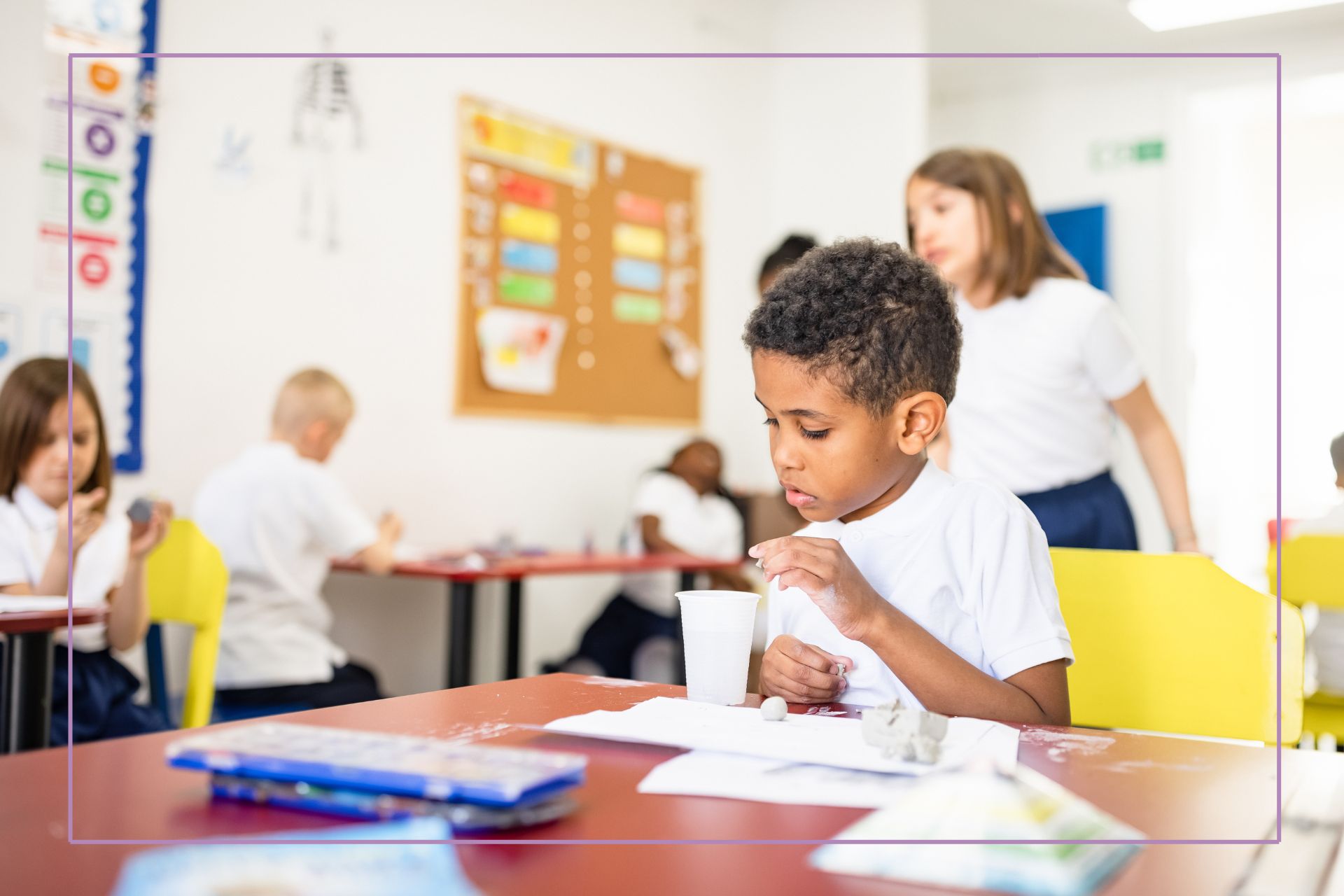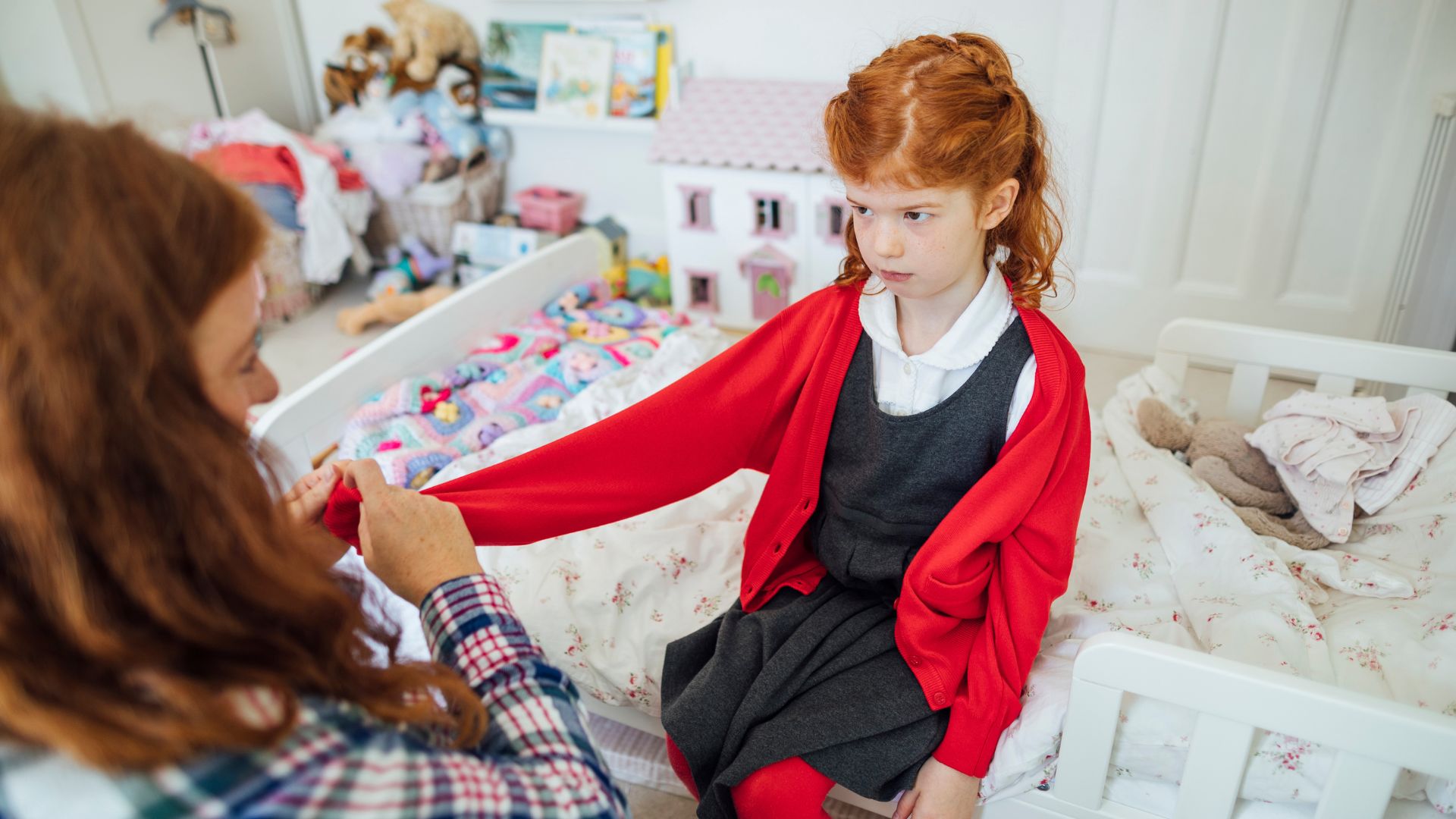"It's not always about toilet training" - here are 7 ways to make sure your child is emotionally ready for school, by an educational psychologist (and #6 is a game changer)
Also teaching them to introduce themselves and ask 'Do you want to play?' are so important in helping your child feel ready


Parenting advice, hot topics, best buys and family finance tips delivered straight to your inbox.
You are now subscribed
Your newsletter sign-up was successful
Let's be honest, some four-year-old are not truly ready for school - even if they were full-time nursery goers - school is a different vibe. Every teacher, TA, classroom and day is different from what they're used to. All we can do to 'ready' our children is to give them the age-appropriate skills to navigate each day.
The transition to school can be tricky for many children and their grown-ups - check out this mum's 10 things I wish I'd known before my child started school. To support parents in this tricky transition period, it is important to note that it is normal for the whole family to be nervous about this stage of life. I mean, some adults dread transition periods, like starting a new job, going to parties where they know no one, or moving home.
A survey of 528 early years and primary school educational professionals (Nicholls et al. 2020) found that 43% of children were reported to have not been supported to be school-ready upon entering the Reception year. Over half of the respondents (parents) (62%) gave the primary reason for this as not having the opportunity to be in a structured learning environment such as attending nursery and, therefore, having limited opportunities to develop essential school readiness skills.
Some kids run in without a backward glance, their excitement about it all carrying them in, while others cling to their parents refusing to let go. No matter which one you have, it's important to realise that all children need a careful plan to successfully transition to school, as it can be either a pleasant or challenging experience. Such a change deserves to be carefully supported.
How to ready your child for school
Here are five points to consider to help your child prepare for the transition to school:
- Your child's feelings - Your child will have a range of feelings about starting school, which is okay. If needed, it is important to embrace each emotion and coregulate with your child. Recognise that your child may not have the language to express their feelings or know how to manage them. Some children are likely to express how they feel through their behaviour. It's essential to manage behaviour calmly and consistently. Remember that at age four, it is developmentally appropriate for a child to struggle to follow school rules consistently.
- Talking to your child about school - Talk positively to your child about school, whatever your feelings are.
- Show your child the school - If you can, take a photo of it. Share books about children starting school with your child.
- Establish routines - Try to establish routines before your child starts school for things like, going to bed at a reasonable time (and a similar time each night), getting up at the same kind of time each morning (and at the right kind of time for nursery), having regular mealtimes with various foods- encourage your child to feed themselves. Turn the TV off at mealtimes etc so that school isn't a complete surprise.

- Support toilet training - It's not all about toilet training and it's important to remember that some children who are successfully potty trained might regress in new settings with unfamiliar grown-ups. Something as simple as a heavy door could put your child off trying to go to the toilet themselves resulting in accidents. Children are usually expected to be toilet trained by the time they start school, and if this is still an area that is developing, the school must be informed. Encourage your child to clean themselves when they go to the toilet. If your child cannot wipe themselves, sharing this with the school's teachers is important.
- Empower them to be independent - Empower them to be independent - Age-appropriate independence is the best gift a parent can give their child;however, it is important to note that some children may have special educational needs and require additional support to develop skills for independence If your child has a special educational need, it is important to be upfront about this and share any information you have with the school so that they can work with you to create a plan to help your child have the best possible start at school. I know 'doing everything for them' might be what some parents think is how to show love, I believe the opposite is true. As much as possible, encourage/ teach your child to undress themselves, especially when taking off and putting on coats, hats, and shoes, if they can do so. Depending on your child’s level of need and if at all possible, please encourage children to walk (not go in a buggy) as much as possible.. Please encourage children to do age-appropriate activities for themselves, e.g. tidying up their toys.
- Teach them words to use to engage with peers if your child has verbal language skills - Take some time in the summer weeks before school starts to really model and teach your child how to use their words with their peers; 'Hello my name is Lucy, do you want to play?' and maybe even share a few stories of when you were younger and you first started school. Share experiences of feeling shy and how that makes sense because it was all new. Shyness and excitement are very similar feelings. If your child is yet to develop verbal language skills, you may find non-verbal communication tools such as visual aids and Makaton helpful to introduce before school begins. Again, It is important to inform the school about all areas about your child’s developmental needs so that they can be supported accordingly.
"A successful transition to school often occurs when there is a partnership between home and school regarding the strategy that should be implemented."
A careful transition plan is helpful when it includes clear communication and the sharing of strategies between all those currently caring for your child and school staff to ensure consistency of approach. Here are four things to maybe ask your chosen school about;
- Pre-visits to your home
- Transition meetings
- Meeting key staff members
- Using visuals of the classroom and class family
A successful transition to school often occurs when there is a partnership between home and school regarding the strategy that should be implemented. For example, it may be agreed that a child has a staggered start to attending school rather than having a full timetable to ease them into a new routine.
Parenting advice, hot topics, best buys and family finance tips delivered straight to your inbox.
Upon transfer, children will need adult support in the classroom to understand the rules, routine and expectations. Parents can work with the school to create an independent plan, such as whether their child will need additional support to engage in specific tasks, such as a "key adult" who can support him at playtimes and lunchtimes to help him navigate social situations. Visual aids and a visual timetable can help children become familiar with a new routine when they transition to school. For children with special educational needs and disabilities, it is essential that there is a careful and flexible plan, and parents can work with the school to explore the reasonable adjustments that need to be made.
The new school year brings with it a whirlwind of emotions here's how to help a sensitive child go back to school and how to navigate packed lunches and school healthy eating policies with a fussy eater.

Dr Britto's qualifications include a Doctorate in Professional Educational, Child and Adolescent Psychology, an MSc in Mental Health in Learning Disabilities and a BSc in Psychology.